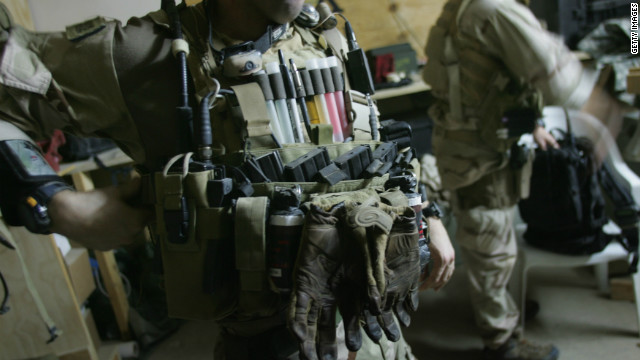[ad_1]
Rear Adm. Collin Green has given commanders until August 7 to detail the problems they see and provide recommendations on how they will ensure troops are engaging in ethical and professional behavior.
The letter — dated July 25 and exclusively obtained by CNN — comes in the wake of several high profile incidents of alleged misbehavior by SEALs.
“I don’t know yet if we have a culture problem, I do know that we have a good order and discipline problem that must be addressed immediately,” Green said.
Green said in the letter that “some of our subordinate formations have failed to maintain good order and discipline and as a result and for good reason,” the culture of the Navy’s special operations forces “is being questioned.”
Concerns raised at highest levels of the Pentagon
The incidents are rising to the highest levels of the Pentagon. Defense Secretary Mark Esper earlier this week spoke to the head of all special operations forces, Gen. Richard Clarke, about recent ethics violations in the military and how they are being addressed. “They discussed some of the recent cases that have emerged in the special operations community. They share the concerns,” Jonathan Hoffman, Esper’s spokesman told CNN.
Clarke is expected to also send his own memo to the force on ethics and call for a renewed focus on ensuring all special operations forces behave appropriately. CNN has spoken to several military officials who say they don’t believe there has necessarily been an increase in incidents of bad behavior, but they have to ensure none of the incidents are tolerated even if they don’t rise to the level of full criminal investigations.
After the most recent series of misconduct cases, including alleged illegal activity by two Navy SEALS teams, the Navy leadership at the Pentagon above the SEALs may step in and issue new directives on compliance with ethics standards, even as the SEALs potentially face criminal military charges, according to a senior Navy official. “There is a cultural and ethics issue in the SEAL community,” the senior Navy official told CNN. “Senior Navy leaders are keenly interested in how this problem is going to be addressed.” New actions could involve Navy Secretary Richard Spencer and the Chief of Naval Operations.
Congress is also beginning to question how the US military is dealing with these incidents. The admiral picked to come in as the next Chief of Naval Operations was asked about this at his Senate confirmation hearing Wednesday.
Systemic problems?
Gilday promised the committee that if he is confirmed he will take a “deeper look” at the SEAL community. Some military officials question if these incidents, such as Gallagher’s case, are happening because of the pressures special operations forces have been under for the last nearly two decades with constant deployments on the most dangerous missions.
But many, like David Lapan, a retired Marine colonel, reject that notion.
“Yes, they are being asked to go out and kill as part of their jobs but they are supposed to be able to do it with discipline and do it in ways that don’t allow them to lose their bearing and lose their discipline,” Lapan said.
Whether it is a systemic problem or not, the community appears to be taking the misconduct seriously. “These ethical breaches affect the entire command and affect the credibility of our entire force,” said US Special Operations Command Chief Master Sgt. Greg Smith.
There are also growing concerns in the Marine Corps of troops adhering to ethics and cultural standards. Recently 18 Marines and one sailor were arrested at Camp Pendleton, California, over allegations on human smuggling.
Gen. David Berger, the new Marine Corps. commandant, said he was “troubled by the extent to which drug abuse is a characteristic of new recruits and the fact that the vast majority of recruits require drug waivers for enlistment.” He also said over the last ten years more than 25,000 Marines were dismissed from the service for misconduct, and drug and alcohol offenses.
[ad_2]
Source link

